Jun 3, 2025 11:25 AM
In Memoriam: Al Foster, 1943–2025
Al Foster, a drummer regarded for his fluency across the bebop, post-bop and funk/fusion lineages of jazz, died May 28…
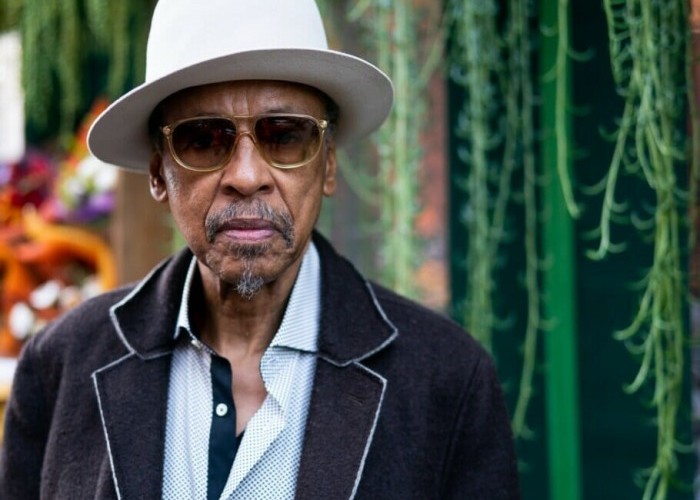
Henry Threadgill set a high bar for collective creation in the service of an individual identity
(Photo: John Rogers)Seated front-row center, Henry Threadgill was visibly grooving to Very Very Circus — an eminently reasonable response to what was, after all, the one band among the many he has led that was at least nominally dedicated to his idiosyncratic brand of groove.
The band was making a triumphant, if short-lived, return to active duty after nearly 30 years. The occasion was Bang on a Can’s extravagant Long Play Festival. Held May 5–7 in Brooklyn venues, the festival had booked more than 50 concerts — and Threadgill’s, presented at the Mark Morris Dance Center, was perhaps the hottest ticket among them.
Drawing an early-evening slot on the festival’s final day, the band fashioned a set that mined its early 1990s albums Spirit Of Nuff…Nuff and Too Much Sugar For A Dime. Split between original members and those coming to the project for the first time, the band offered a vivid account of the music, weaving its fabric of intricate organization and improvisatory spectacle into a tapestry of profound delights.
When it first emerged on the scene, Very Very Circus became instantly recognizable by virtue of its instrumentation: two tubas, two electric guitars, trombone, alto saxophone and drums. While the overall blend was distinctive, it was the tubas that most lent the music its singular quality. And between the two tubas it was arguably Marcus Rojas who, then as now, gave the music its center, sonically and spiritually.
Rojas, who grew up listening to the popular music of the barrio and grew into a classical tubist of some renown, brought both those elements into Very Very Circus, where he acquired a jazz sensibility as well. At the festival, he was a commanding presence, wielding his ax with funky attitude as he looped improbably complex patterns over which his bandmates — guitarists Brandon Ross and Miles Okazaki, saxophonist Yosvany Terry, tubist-trombonist José Davila and drummer Gene Lake — could layer their similarly complex, sometimes contradictory ideas. If the effect was occasionally cacophonous, so be it. This was, make no mistake, a very very circus.
From the opener, “Paper Toilet,” to the closer, “Bee Dee Aff,” Rojas set a tone of restless agitation that peaked, paradoxically, in one of the evening’s least turbulent moments midway through the set. Ushering the band into “Drivin’ You Slow And Crazy,” he produced a disquieting succession of long, low, billowing tones that filled the room with foreboding. Coming out of a particularly heated “Dangerously Slippy,” the transition in mood — abrupt yet seemingly inevitable — captured Threadgill’s disorienting eccentricity in full.
Lingering after the performance, composer George Lewis — a onetime contemporary of Threadgill’s in the Association for the Advancement of Creative Musicians who earlier in the festival enjoyed Alarm Will Sound’s performance of Tyshawn Sorey’s tribute composition For George Lewis — was obviously taken by the Threadgill set. At the same time, he professed a longstanding mystification about what Threadgill was up to.
“After all these years, I still don’t get it,” he said with a half-smile.
To be sure, the Threadgill set had its kinks. Early on, an apparent mixup in the location of scores prompted a bit of scurrying about. At another point, a concerned Threadgill rushed the sound engineer to rectify a problem with the horns in the mix. Truth be told, the acoustics of the setting — a big box of a room — seemed less than ideally suited to the raucous assemblage of players inhabiting Threadgill’s sound world.
Nonetheless, Threadgill, buttonholed amid a post-performance crush of well-wishers, pronounced himself satisfied with the revisiting of a group in which he, at age 79, may no longer perform — for this set, at least, he relinquished the sax chair — but which remains an expression of his identity.
“It stands up,” he said.
If Threadgill set a high bar for collective creation in the service of an individual identity, the festival offered others who were aspiring to reach that bar. Over at the BAM Café, trumpeter Adam O’Farrill, 50 years Threadgill’s junior, was leading a quartet of his peers — tenor saxophonist Xavier Del Castillo, bassist Walter Stinson and drummer Zack O’Farrill, Adam’s older brother — each of whom was clearly willing to sublimate his virtuosic tendencies. The result was a band with a viable brand, its message encapsulated in its name: Stranger Days.
The band leaned on episodic compositions — “Thanks, Tina” was rendered to particularly great effect — with colloquies that never quite resolved, its constituent parts coming together, breaking apart and reforming in ever-shifting shapes punctuated by bursts of improvisatory brilliance. The drums were stubbornly hesitant to settle into patterns, while the horns and bass danced deftly around the edges of specific harmonies.
Though O’Farrill’s father is the noted pianist Arturo O’Farrill, the younger O’Farrill, chatting briefly after the set, insisted that the lack of a chordal instrument was not an act of rebellion. There is no reason to doubt him. But based on his sound and his sources of inspiration — his tune “The Stranger,” which he did not play at the festival, takes its name from the novel by that master of alienation, Albert Camus — a more general sense of disaffection was hard to dismiss. At a time when such feelings are hardly in short supply, that disaffection seemed to match the moment.
Elsewhere at the festival, artists were staking their claims to a piece of the zeitgeist. At Public Records, Mary Halvorson, Michael Formanek and Tomas Fujiwara, as the guitar-bass-drums trio Thumbscrew, dug into a gnarly set of high-octane originals tempered by a couple of twists (Jimmy Rowles’ “The Peacocks” worked nicely). At Littlefield, Matt Garrison, Ole Mathisen and Marko Djordjevic, as the electric bass-saxophone-drums trio Take Off Collective, pushed the boundaries of their respective instruments in a fully improvised, digitally enhanced trip.
Like that performance, the one that followed at Littlefield — featuring the saxophone-piano duo of Dave Liebman and Kenny Werner — was an extended improvisation. But it held a surprise. Liebman, known for his incendiary work since his days with Elvin Jones and Miles Davis half a century ago, was strikingly subdued. Seated, his head down and soprano pointed at the floor, he and Werner floated through a dreamy set of free associations, opening with some abstract musings and closing with an airy caress of John Coltrane’s “Naima” that fell somewhere between heartfelt tribute and solemn valedictory. DB
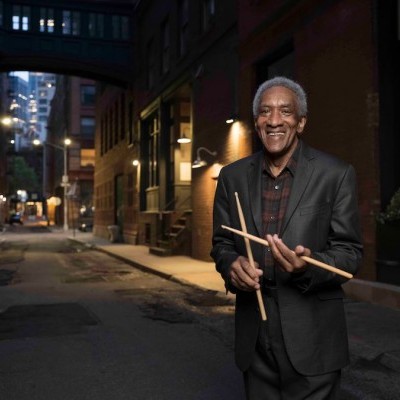
Foster was truly a drummer to the stars, including Miles Davis, Sonny Rollins and Joe Henderson.
Jun 3, 2025 11:25 AM
Al Foster, a drummer regarded for his fluency across the bebop, post-bop and funk/fusion lineages of jazz, died May 28…
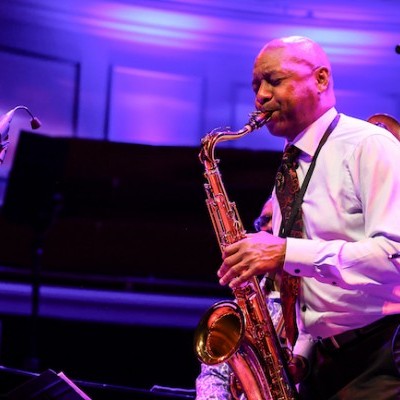
“Branford’s playing has steadily improved,” says younger brother Wynton Marsalis. “He’s just gotten more and more serious.”
May 20, 2025 11:58 AM
Branford Marsalis was on the road again. Coffee cup in hand, the saxophonist — sporting a gray hoodie and a look of…
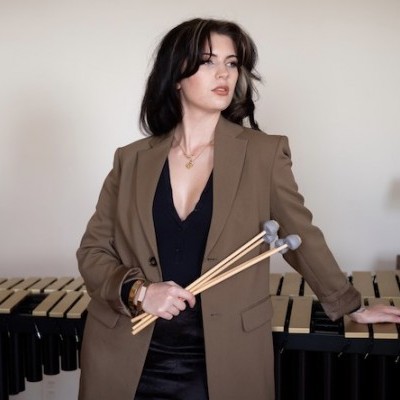
“What did I want more of when I was this age?” Sasha Berliner asks when she’s in her teaching mode.
May 13, 2025 12:39 PM
Part of the jazz vibraphone conversation since her late teens, Sasha Berliner has long come across as a fully formed…

Roscoe Mitchell will receive a Lifetime Achievement award at this year’s Vision Festival.
May 27, 2025 6:21 PM
Arts for Art has announced the full lineup for the 2025 Vision Festival, which will run June 2–7 at Roulette…
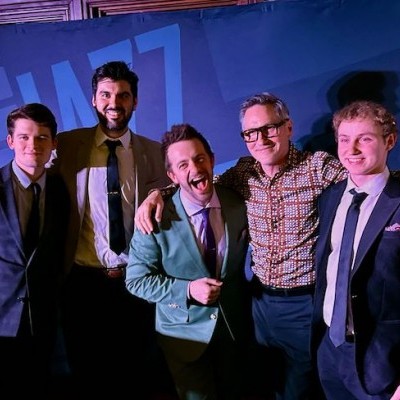
Benny Benack III and his quartet took the Midwest Jazz Collective’s route for a test run this spring.
Jun 3, 2025 10:31 AM
The time and labor required to tour is, for many musicians, daunting at best and prohibitive at worst. It’s hardly…